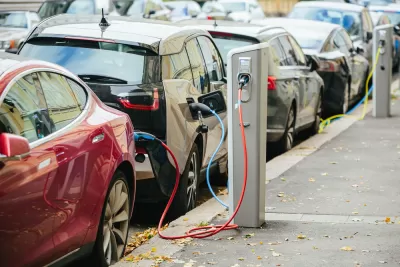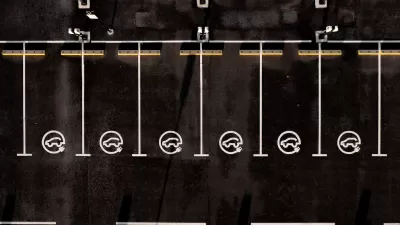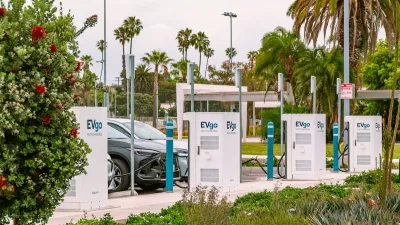Advocates warn that an inequitable distribution of EV charging facilities could lead to ‘charging deserts’ that will prevent widespread adoption of EVs in low-income communities.

The recently passed Inflation Reduction Act (IRA), among other federal programs, creates incentives that encourage the adoption of electric vehicles and supports the development of a nationwide EV charging network. However, some advocates worry that the infrastructure and incentives won’t reach the poorest communities—the people most impacted by the effects of pollution from fossil fuel-powered vehicles.
A piece by Brett Marsh in Grist highlights the uneven distribution of charging infrastructure, which is often difficult to find in low-income areas, comparing the problem to so-called ‘food deserts.’ “If there are neighborhoods that are already food deserts, why expect them to have a charging station or three?”
According to Marsh, “Charging stations are more likely to be found in dense clusters in wealthier and generally whiter urban areas. Drive, or walk, through a low-income community of color or a rural area, and you would be hard-pressed to find a charging station.” Presently, incentive programs for buying electric vehicles benefit wealthier households most.
Activists note that the inequitable rollout of EV infrastructure reflects historical patterns. “Activists and community members in neighborhoods of color have reflected on the missed opportunities of previous massive national infrastructure projects,” such as the interstate highway system. Advocates for low-income communities hope that they won’t once again be left behind.
FULL STORY: To Ensure Access to Electric Cars, Some Activists Are Calling Attention to ‘Charging Deserts’

Alabama: Trump Terminates Settlements for Black Communities Harmed By Raw Sewage
Trump deemed the landmark civil rights agreement “illegal DEI and environmental justice policy.”

Study: Maui’s Plan to Convert Vacation Rentals to Long-Term Housing Could Cause Nearly $1 Billion Economic Loss
The plan would reduce visitor accommodation by 25% resulting in 1,900 jobs lost.

Planetizen Federal Action Tracker
A weekly monitor of how Trump’s orders and actions are impacting planners and planning in America.

Wind Energy on the Rise Despite Federal Policy Reversal
The Trump administration is revoking federal support for renewable energy, but demand for new projects continues unabated.

Passengers Flock to Caltrain After Electrification
The new electric trains are running faster and more reliably, leading to strong ridership growth on the Bay Area rail system.

Texas Churches Rally Behind ‘Yes in God’s Back Yard’ Legislation
Religious leaders want the state to reduce zoning regulations to streamline leasing church-owned land to housing developers.
Urban Design for Planners 1: Software Tools
This six-course series explores essential urban design concepts using open source software and equips planners with the tools they need to participate fully in the urban design process.
Planning for Universal Design
Learn the tools for implementing Universal Design in planning regulations.
Caltrans
Smith Gee Studio
Institute for Housing and Urban Development Studies (IHS)
City of Grandview
Harvard GSD Executive Education
Toledo-Lucas County Plan Commissions
Salt Lake City
NYU Wagner Graduate School of Public Service





























